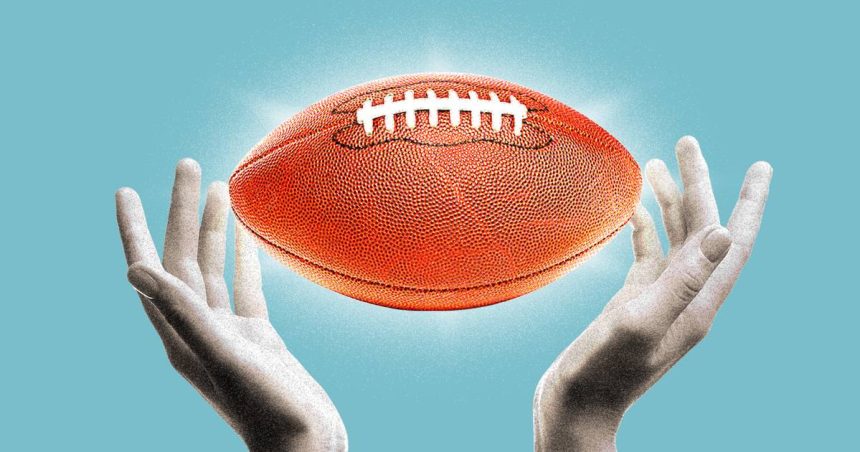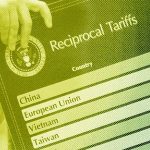The Super Bowl lineup is in. No, not the teams, but the advertisers, some of whom seem to announce plans for the game earlier and earlier each year.
A 30-second Super Bowl ad costs around $7 million, but the reach is unparalleled in live sports, regardless of marketers’ goals. Around 123.4 million people watched the 2024 game, making it the most-viewed Super Bowl on record, and Fox, the broadcaster of the 2025 game, sold out of ads in early November.
Beyond that, appearing in the big game can signal broader brand success.
“It’s become a place for advertisers not just to reach a large audience, but to show Wall Street that…they’re doing well,” said Frank Scherma, co-founder and president of RadicalMedia, which has produced Super Bowl ads for brands including CrowdStrike and Pepsi. “It covers a two-prong approach there: reach the consumer, but also reach the investors.”
Though the teasers remain few and far between, some seasoned marketing execs have a sense of what to expect during Super Bowl ad breaks.
Why so serious?
Execs said it’s safe to expect brands to go the comedic route. Funny Super Bowl ads have become especially prevalent post-Covid, said VaynerMedia Chief Client Officer Nick Miaritis, who’s worked on Super Bowl campaigns like the death of Mr. Peanut and Miller High Life’s one-second ad from 2009. Given the political climate, advertisers are also more likely to “keep it light” rather than risk being “wildly off the mark tonally,” he said.
Plus, the Super Bowl is meant to be fun.
“It’s a moment of relief, not reflection,” Jones Krahl, US head of creative and creative fellow at Deloitte Digital, said. “You’re drinking your beer, you’re eating your wings, you’re celebrating. I think this year specifically…brands should use a more light-hearted tone, a humorous tone, even a stupid tone.”
The Big Easy
This year’s Super Bowl is in New Orleans, which is why Kantar is “anticipating a ‘roaring twenties’ energy” to the ads, according to EVP Ryan McConnell.
The Big Easy provides ample opportunities for experiential and other off-screen activations, which 2024 Super Bowl advertisers embraced in Las Vegas. Even brands that didn’t secure broadcast spots have the opportunity to stand out on the ground, said Laura Petruccelli, co-founder and chief creative officer of nice&frank, which is working on Häagen-Dazs’s first Super Bowl ad.
Matt Sweeney, chief investment officer of GroupM, said he expects brands to lean into NOLA’s rich traditions. “Given the city’s history of memorable moments—like the infamous Superdome power outage in 2013—there’s always room for surprises,” he said.
Get marketing news you’ll actually want to read
Marketing Brew informs marketing pros of the latest on brand strategy, social media, and ad tech via our weekday newsletter, virtual events, marketing conferences, and digital guides.
Experiential campaigns can also extend through the screen in the form of shoppable or gamified TV spots, like Coinbase’s bouncing QR-code from 2022, McConnell said. Love it or hate it, broadcast alone doesn’t cut it anymore, Scherma said.
“I don’t think any advertiser looks at the Super Bowl or whatever they’re airing in terms of, that’s the only outlet they’re going for,” he said.
Star power
What’s a Super Bowl ad without celebrities? Many marketers agreed that A-listers will keep starring in creative and that influencers will continue joining them. “The two together are a powerful combination,” Sweeney said.
If all goes well, stars can give a brand “instant relevance” with the game’s broadcast audience, while influencers often offer additional reach on social while appealing to younger generations, Miaritis said. While some in the ad industry are eager to see more influencers in the game, others are more apprehensive.
“When you’re talking about larger-than-life ads, you want celebrities that people don’t necessarily need to google or look up on their Instagram,” Rick Suter, a senior content strategist at Gannett and editor of USA Today’s Ad Meter, said. “That might shift in 10 years, but I still think that the A-list-type celebrities and the recognizable faces are always going to be the kind of topical thing that works.”
(Un)usual suspects
Viewers can usually expect to see brands from the beer, soda, snack, auto, and entertainment categories in the Super Bowl, “but let’s not sleep on rookie brands,” Mike Caguin, chief creative officer of creative agency Betty, said. “After all, the Ad Meter often favors the bold.”
In addition to Häagen-Dazs, Coffee mate, Instacart, and Ritz are advertising in the game for the first time this year, with more announced each week. Aidan O’Connor, SVP at Prosek Partners, said more beauty and personal-care brands might also join the roster, following in the footsteps of CeraVe and e.l.f. Cosmetics.
Ad execs are also keeping their eyes peeled for campaigns that go beyond the typical format. There’s already some buzz about Doritos’s “Crash the Super Bowl” campaign, which invites fans to submit their own Super Bowl ads, as well as Dove’s return to the game promoting its efforts to keep girls in sports.
“It is harder to have the courage to really disrupt,” given the price tag of a Super Bowl spot, Krahl said. “Kudos to the brands that will…not be a trend, but actually be truly something that people will follow next year.”
Read the full article here









